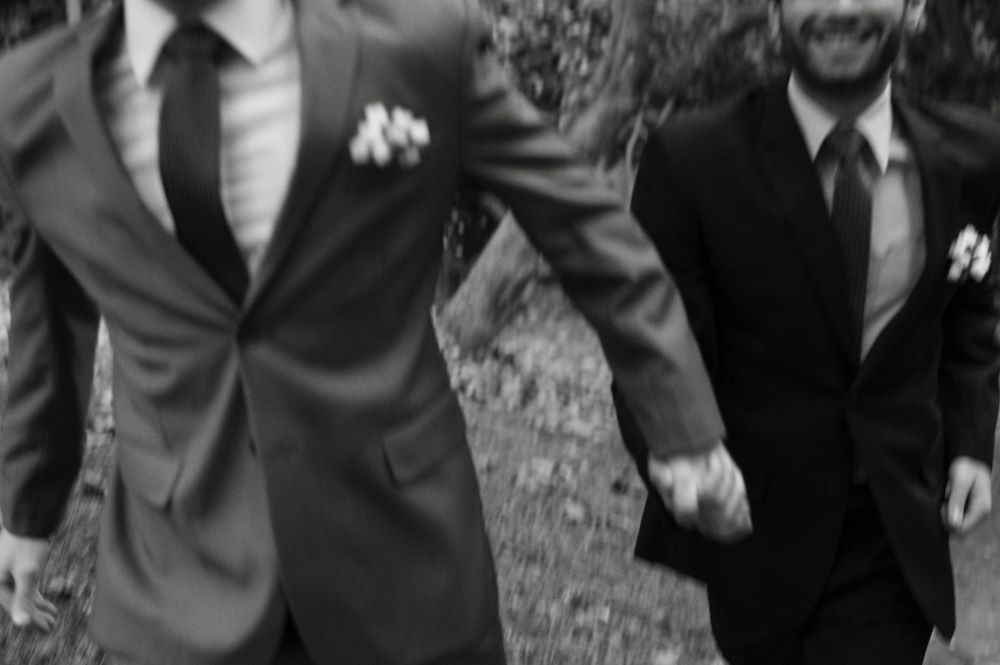
(Unsplash/Maico Pereira)
When I read the news that Pope Francis would be allowing Catholic priests to bless couples in same-sex unions (though not perform same-sex weddings), it hit close to home.
As a Modern Orthodox rabbi who seeks to do everything possible within the system of traditional Jewish law to welcome LGBTQ people, I've been watching debates like this play out for decades. And, as a descendant of two Catholic grandparents, and having prayed the Psalms with my Catholic grandmother on her deathbed when I was a rabbinical student, I could easily put myself in the position of the many Catholics affected.
The statement also gave me a window into how others might see my own negotiations with tradition as a faith leader. As a guide to many LGBTQ Jews, I understood the need of LGBTQ Catholics to bring holiness to this central relationship in their lives. I also could grasp how Catholics, like Jews, place a premium on commitment to tradition and religious authority, concepts that seem to have fallen out of fashion today. For people making these kinds of decisions, it takes wisdom to be sure when we're making changes out of fidelity to Divine revelation and when we might be assimilating to accommodate the pressures of the world. With the Catholic and Jewish communities both cherishing the dismissed values of sanctity and continuity, I don't fault those who, in good faith, are cautious to change.
At the same time, I think we have to commend this small but important move by the pope. Just as religious leaders must uphold tradition so that we can be guided by wisdom that lasts for all time, clergy cannot kowtow to political pressure and feigned piety from those who profess religious conviction but are actually interested in keeping others down.
"We are still debating the division between 'progressives' and 'conservatives,' while the real difference is between lovers and those who have lost that initial passion," Pope Francis recently said, regarding the politics of the church. "That is the difference. Only those who love can journey forward."
Advertisement
Some Modern Orthodox rabbis are performing same-sex unions and marriages, but the vast, vast majority are not. And perhaps one thing preventing faster change is that Jews don't have a pope. A rabbi's authority is granted only by the trust of the local community, which in the Orthodox world can make us quite change-averse. Perhaps Pope Francis, by offering his faithful a middle ground, can set a framework for those in other religious communities to follow. Virtually all Modern Orthodox rabbis know that the last thing we want is to push LGBTQ community members away. And the pope, by nudging the status quo, is showing us the value of pulling people in.
I know that, for both Catholics and Jews, the hard-core traditionalists will not welcome this change. And I know that, to the progressive wings of both of our groups, half-measures like this will not be enough. But existing in a place where we can simultaneously hold onto tradition and progress requires a leadership that dares the entirety of the community to follow.
Rabbi Jonathan Sacks, of blessed memory, has said:
A leader must lead from the front. But a leader must also understand the pace at which those they lead can go. It is not leadership if the leader is so far ahead of the people that when they turn their head round, they discover that there is no one following. A leader must go out in front and come back in front. But they must also (in the words of the medieval rabbi Rashi) "lead the people out and bring them back", meaning, they must take people with them. They must make sure that they are keeping pace.
For those who've taken on the difficult task of leading lots of people, this important step forward by the pope is a familiar one. It gives me both joy and difficulty to say to someone: Even if our tradition can't quite treat same-sex marriages as identical to heterosexual marriages, LGBTQ people are entitled to the same dignity and the same respect.
But let's not lose sight of what this is actually about: the love and lives of our community members. For traditionalists across the board, celebrating love and family is something we should wholeheartedly embrace.




